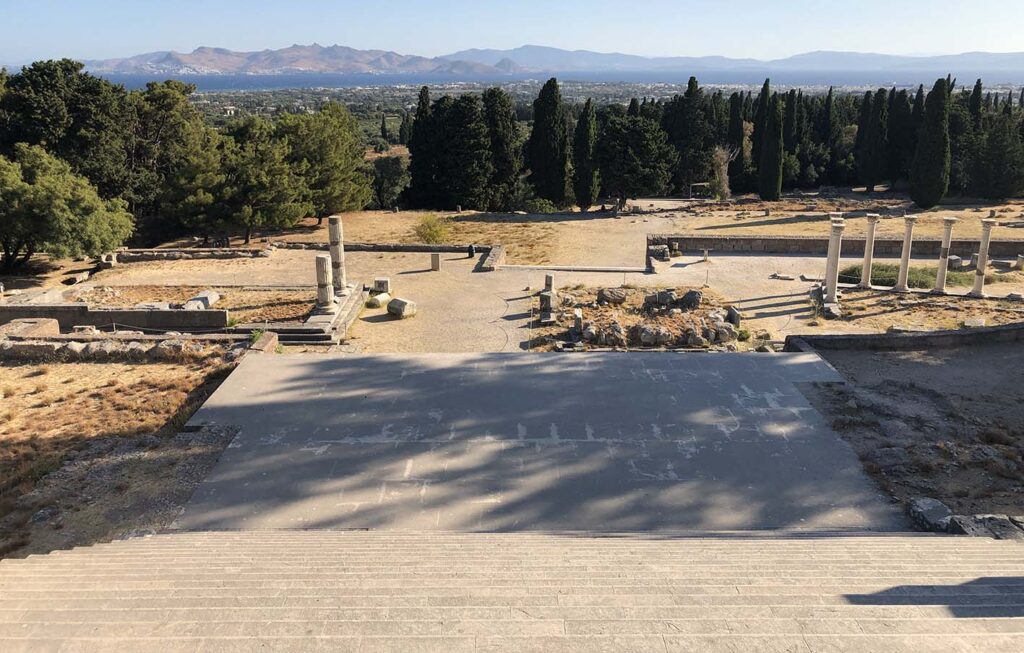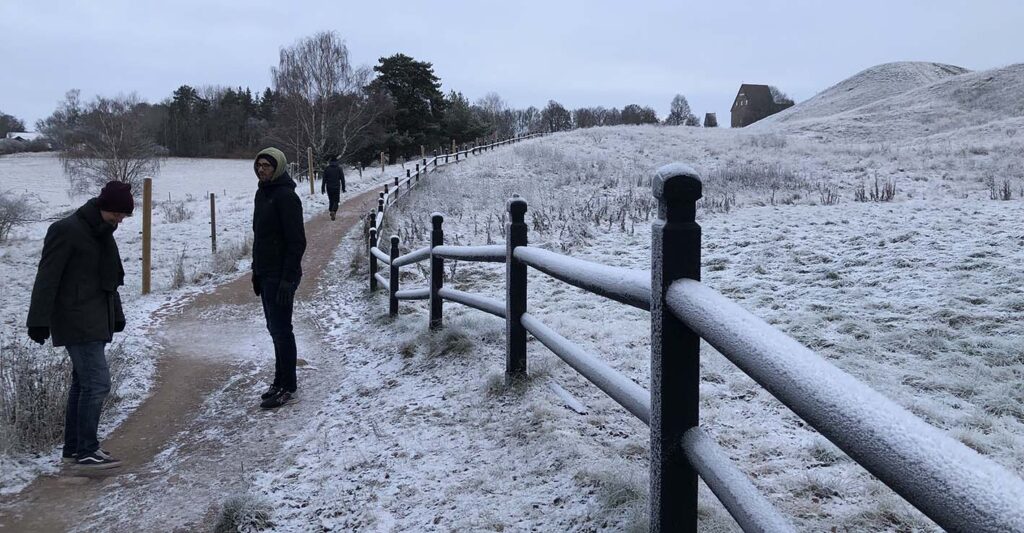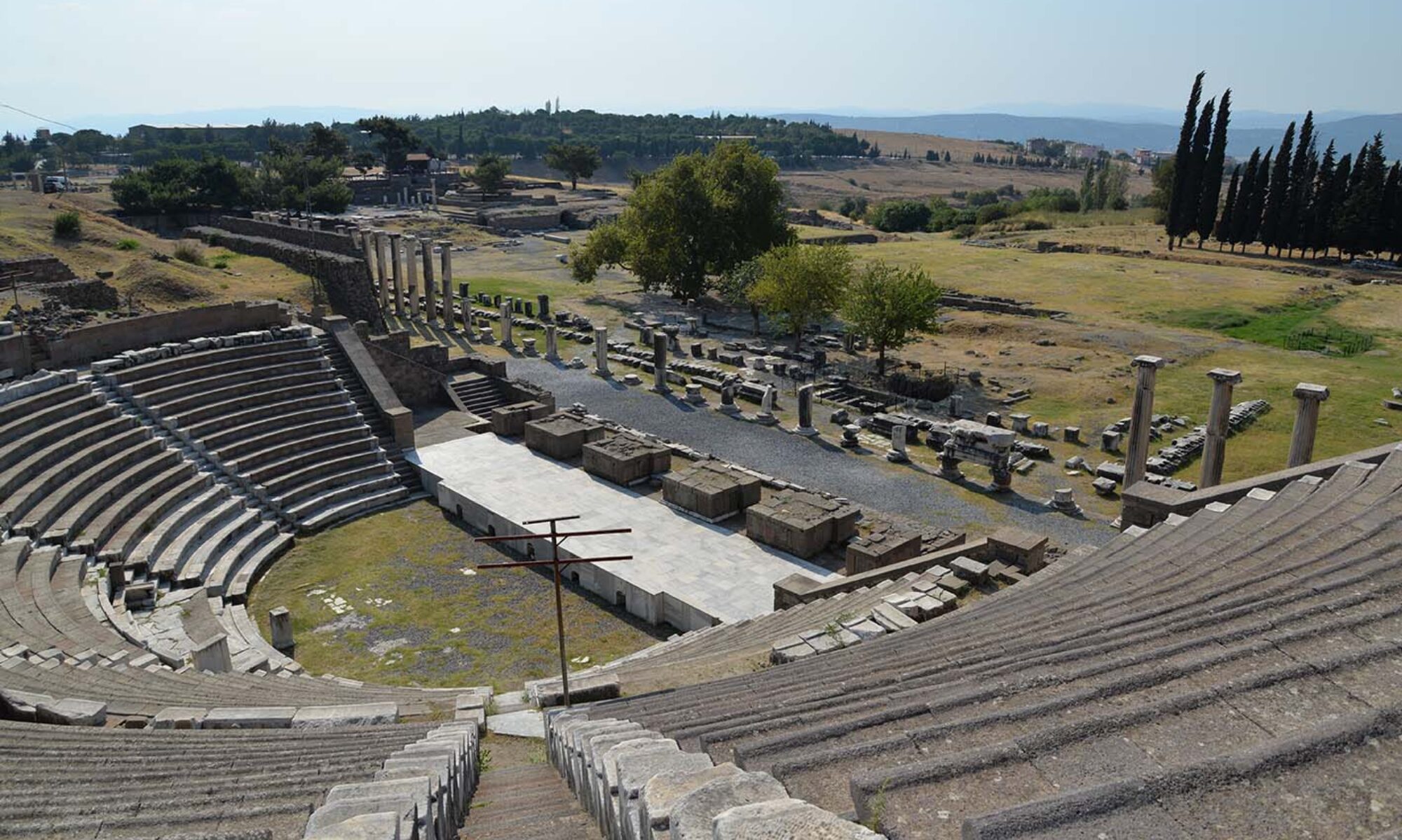More than a place of worship: complexity at sacred sites in the ancient world
8 December 2022 – Uppsala University

In December 2022, a workshop on the complexities of sacred space was organized by Christina Williamson and Axel Frejman at Uppsala University, see previous blog. The aim was to approach the magnitude of meaning at sanctuaries by transcending the regular disciplinary boundaries by engaging scholars from Groningen and Uppsala from different areas – theology, archaeology, and ancient history – who use both textual and material culture to understand their functions. A secondary aim of the workshop was to give early career scholars from Groningen an international venue to present their work, expand their networks, and inspire them to move beyond the confines of their disciplines in their approaches. The workshop, which took place on 8 December from 13.15-17.00 in a lecture hall in the new Blåsenhus building of Uppsala University, was also made available online so that members of CRASIS and the partners in the ENLIGHT program could join in, as well as other interested persons.
Three scholars from Groningen and two from Uppsala presented and exchanged ideas with an international audience. After an opening by Christina Williamson (associate professor ancient history, Groningen), who presented the aims of the workshop, Axel Frejman (postdoc archaeology, Uppsala) chaired the rest of the afternoon. Adam Wiznura (PhD ancient history, Groningen) began the session with a paper entitled ‘Problematizing sacred space: The Thessalian sanctuary of Athena Itonia’, in which he focused on the votive practices and shifting scopes of the shrine of Athena Itonia regarding local versus Thessalian identities. In his paper ‘Memories of holiness and contested claims: The case of the Temple Mount / Al-Aqsa in Jerusalem’, Håkan Bengtsson (associate professor theology, Uppsala) unfolded many of the layers of religious and political meanings of the Temple Mount in Jerusalem, demonstrating how it is contested space. Temporal complexities were the topic of the paper of Christina Williamson, ‘Sanctuaries as complex timescapes: The Asklepieion of Pergamon’, in which she discussed elite, private, and civic perspectives of time that interacted at the Asklepieion in Pergamon. Sacred complexities are at the heart of the PhD project of Pim Schievink (PhD ancient history, Groningen), who focused on the Koan Asklepieion as a complex space in which healing rituals intermingled with honors bestowed on the elite, recognition of the ephebes, representation of civic tribes, and movement in his paper ‘Constructing the sacred on Kos: Voices, practices, and experiences in the Asklepieion of Kos during the Hellenistic period’. Gunnel Ekroth (full professor classical archaeology and ancient history, Uppsala) closed the workshop with a presentation of the results of her ‘Temenos’ project, in her paper entitled ‘What’s in a name? Temenos and hieron as designations of sacred space’. She urged us to look through the blank spaces on the plans of sanctuaries in addressing the many different types of contexts in which the concepts of temenos and hieron are applied. The papers were all well received and followed by engaging discussions from scholars at all levels. The three delegates from Groningen were moreover treated to a tour of the extensive archaeological collection at Uppsala University, and visited the ancient site at nearby Gamla Uppsala, a historically complex sacred space in its own right.

The workshop was organized in the context of a research fellowship for Christina Williamson at Uppsala University, and was funded by the interdisciplinary research network CRASIS, in Groningen as well as ENLIGHT (Groningen), the department of Classical Archaeology and Ancient History at Uppsala., at Uppsala University, and especially the interdisciplinary research network, AGORA,
Axel Frejman and Christina Williamson developed this workshop as a step towards a major international conference that they are co-organizing (with Floris van den Eijnde, Utrecht) on sanctuaries in the ancient world, to be held at the Swedish Institute in Athens, 5-8 April 2023, under the title ‘Distant deities, central places: Reconsidering the “extra-urban” sanctuary’.
